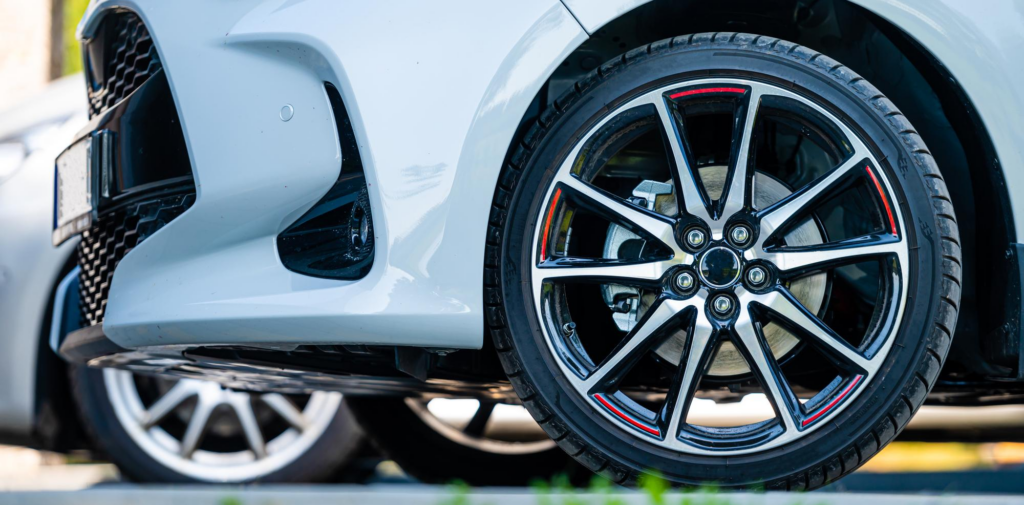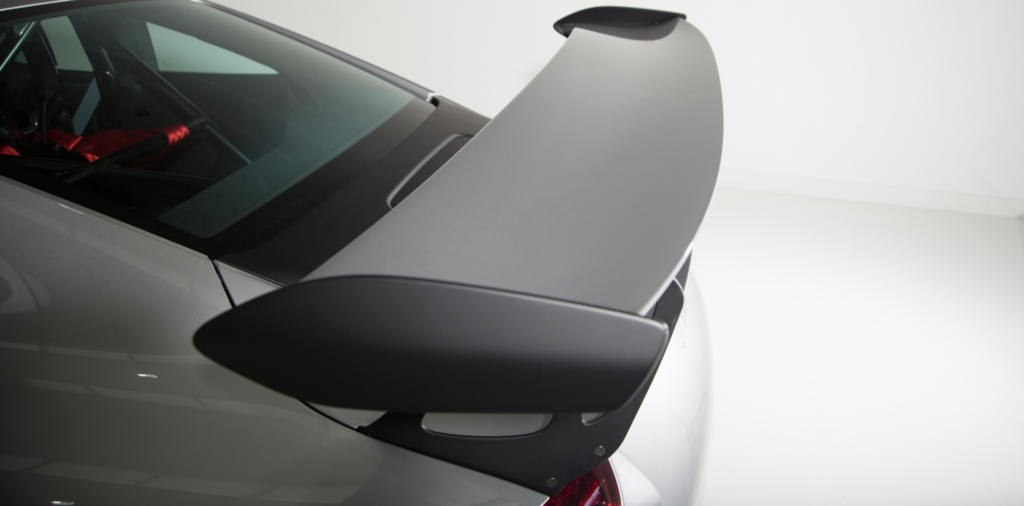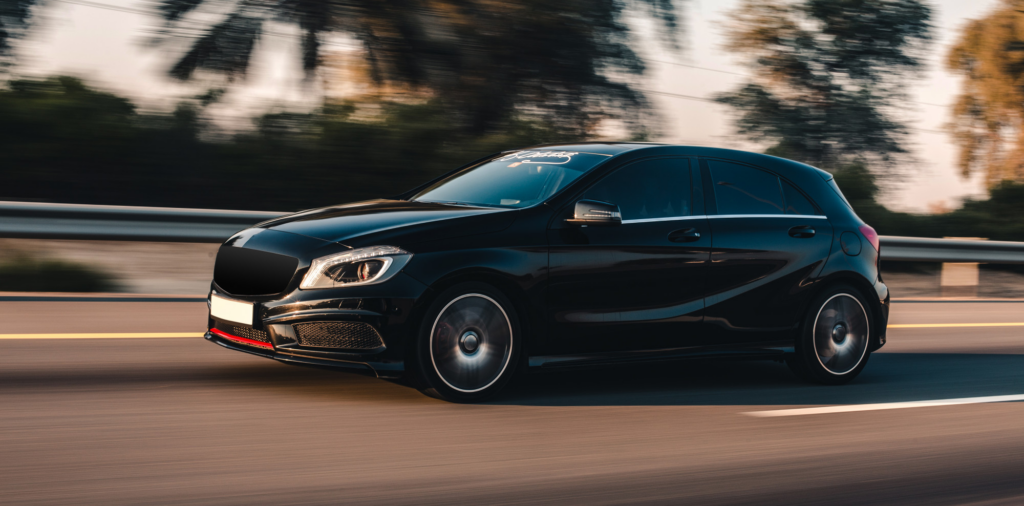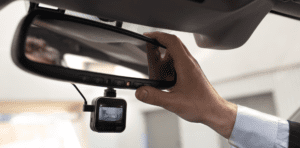Compare modified car insurance
✔ Compare cheap modified car insurance quotes
✔ Over 110 insurance providers
✔ Get a quote in minutes
✔ Save up to £504*
If your vehicle has been changed in any way since its original manufacture, it’s classified as a modified car.
Understanding how to properly insure a modified car is crucial to ensure you get the appropriate cover that aligns with both your requirements and budget.
What Counts as a Car Modification?
Understanding Car Modifications
A modification refers to any change made to your car that deviates from the original specifications provided by the manufacturer. These changes are generally categorised into two types: performance and cosmetic modifications.


Performance Modifications
Performance modifications involve alterations that enhance the car’s driving dynamics or increase its power. This category includes:
- Altering the Suspension: Adjusting the car’s suspension system for improved handling.
- Wheel Changes: Replacing the standard wheels with different sizes or materials.
- Horsepower Increase: Methods to boost the engine’s power output.
- Turbo Upgrades: Installing or upgrading a turbocharger for enhanced engine performance.
- Engine Re-engineering: Making significant changes to the engine structure and function.
- Chip Tuning and Remaps: Adjusting the electronic control unit (ECU) for better performance.
- Intake and Exhaust Upgrades: Modifying the air intake and exhaust systems to improve engine efficiency.
- Handling Modifications: Changes made to improve the car’s handling characteristics.
- Lowering the Suspension: Adjusting the suspension to lower the car’s height.
- Fuel System Upgrades: Enhancing the fuel delivery and storage systems.
- Transmission Modifications: Altering the transmission system for improved speed and responsiveness.
Cosmetic Modifications
Cosmetic modifications are changes made to the car’s appearance. These include:
- Go-Faster Stripes: Adding racing stripes or similar decals to the car’s exterior.
- Body Kit Amendments: Modifying or adding to the car’s bodywork for aesthetic reasons.
- Sunroof Installation: Adding a sunroof to the car.
- Tinted Windows: Applying a tint to the car windows for style or privacy.
- Specialised Paintwork: Custom paint jobs that alter the car’s original colour or texture.
- Speaker Systems: Installing advanced or custom audio systems for enhanced sound quality.
How much can you save on your modified car insurance?
Most Popular Types of Car Modification
Engine Modifications
Engine enhancements are amongst the most sought-after modifications. Tweaking the engine can significantly boost the vehicle’s speed, effectively transforming it into a different machine in the view of insurance companies.
Wheel Modifications
Wheels are another popular modification area. Adding larger or alloy wheels can influence the car’s handling and potentially make it more attractive to thieves. It’s advisable to stick to the vehicle manufacturer’s approved tyres when replacements are needed.
Window Tinting
Tinted Windows are a common modification. If they’re within legal limits, tinting the windows shouldn’t have a major impact on insurance. The extra privacy can even be seen as a deterrent against crime by some insurers.
Stickers
Surprisingly, even Stickers can be considered a modification. For instance, a reverend in Wales was informed by her insurance company that religious messages on her car could void her insurance policy.
Bodywork Changes
Altering Bodywork by adding expensive components raises the vehicle’s value and should be declared as soon as they’re installed. Modifications to the car’s body can affect its aerodynamics and safety during accidents.
Spoilers
Spoilers are popular for improving handling at high speeds. However, they can also increase the likelihood of speeding. It’s important to ensure that a new spoiler doesn’t obstruct rear window visibility and is installed securely by a professional mechanic.


Parking Sensors
Installing Parking Sensors is a modification aimed at decreasing the likelihood of minor collisions, which constitute a large portion of insurance claims. This modification can be seen as an indication of a safety-first approach, potentially leading to lower insurance premiums.
Exhaust System Modifications
Changing the Exhaust System can enhance the car’s performance. However, any alteration to the original performance specs is seen as a risk by insurance providers.
Modifications for Drivers with Disabilities
Modifications for accessibility, such as wheelchair ramps, lifts, adapted foot pedals, hand controls, and steering aids, are also prevalent. These changes make vehicles more user-friendly for drivers with disabilities.
How much can you save on your modified car insurance?
How Do Car Modifications Affect the Cost of Insurance?
Impact of Modifications on Insurance Costs
Modifications to a car, regardless of their scale, can influence the cost of your car insurance. Typically, alterations made to a vehicle might result in higher premiums.
This is because modifications can change the risk profile of the car, potentially making it more attractive to thieves or more susceptible to damage.


Variable Costs for Modified Car Insurance
However, it’s important to note that insurance for modified cars doesn’t always come with exorbitant costs.
The impact on insurance premiums can vary based on the type of modification and the perceived increase in risk.
In some cases, certain modifications, particularly those related to safety or security, might not significantly raise insurance costs and could even lead to reductions in some instances.
How much can you save on your modified car insurance?
Why Does It Cost More to Insure a Modified Car?
The cost of insurance premiums is largely determined by the likelihood of an insurance claim being made. When it comes to modified cars, insurers take into account several key factors:


Increased Value and Repair Costs
If the modifications elevate the value of your car, this could lead to higher claims, as repairing or replacing parts might be more costly than for a standard vehicle.
Risk of Accidents
Modifications that make a car faster can heighten the risk of involvement in speed-related accidents. This increased risk factor can lead to a rise in the cost of insurance.
Theft Risk
Cars with expensive technological additions or performance enhancements are often seen as more attractive targets for theft.
Additionally, insurers might perceive that modifications deviating from the manufacturer’s standard settings could compromise the vehicle’s integrity, further increasing the risk profile.
Impact on Young Drivers
Young drivers are statistically more prone to insurance claims. Therefore, any modifications they make to their cars can significantly amplify their insurance premiums.
Importance of Notifying Insurers
It’s crucial to inform your insurance provider if you modify your car during the insurance term. Such changes may affect the cost of your premium, and you might incur an amendment or service fee.
Before making any modifications, it’s wise to check with your provider to understand the potential impact on your insurance costs.
How much can you save on your modified car insurance?
How Does Modified Car Insurance Work?
Cover Beyond Regular Car Insurance
Modified car insurance extends the scope of protection offered by standard car insurance policies.
Alongside the typical cover for accidental damage and third-party injuries, this specialised insurance also encompasses the additional components and accessories fitted to your modified car.


Special Provisions for Highly Modified Cars
Agreed-Value Policy
For those who own cars that hold significant value due to their modifications, an agreed-value policy might be preferable.
This type of policy ensures you receive a pre-determined value for your vehicle in case of a write-off, as opposed to the average market value, which might not reflect your car’s unique modifications.
Salvage Retention Clause
Another key feature to consider is a salvage retention clause. This allows you to retain the remains of your vehicle and its parts in the event of it being declared a total loss.
This clause can be particularly beneficial for enthusiasts who have invested heavily in their car’s modifications and wish to salvage these parts.
How much can you save on your modified car insurance?
What Does Modified Car Insurance Cover?
Basic Cover
Modified car insurance provides cover for the same risks as standard car insurance policies. This includes the usual protection against accidents, damage, and third-party claims.
However, if you opt for insurance that specifically covers your car and its modifications, the cost is likely to be higher.


Optional Extras
Breakdown Cover
Just like regular car insurance, you can add various optional extras to your modified car insurance. A popular addition is breakdown cover, which can be crucial if your modified car requires specific assistance on the road.
Courtesy Car and Other Covers
Other optional covers include the provision of a courtesy car while yours is being repaired, lost keys cover, and windscreen cover. You might also consider adding no claims discount protection to safeguard your premium discount in case of a claim.
Legality of Modifications
Ensuring Legal Compliance
It’s vital to ensure that all modifications to your car are legal. If any modifications are found to be illegal, you won’t be able to obtain cover.
Common examples of illegal modifications include neon lights fitted under the car and excessively tinted windows. In the UK, the law requires that front side windows must allow at least 70% of light through.
Non-compliance with these legal standards can lead to the inability to insure your modified car.
How much can you save on your modified car insurance?
How Can I Save on Modified Car Insurance?
While finding affordable modified car insurance can be challenging, there are strategies to lower your insurance premiums, applicable to all types of cars.


Cutting Down Mileage
Reducing the amount of mileage you drive annually can significantly decrease your insurance costs. Insurers often view lower mileage as a lower risk.
Secure Parking
Parking your car off the road, such as in a garage or on a private driveway, can also reduce the risk of theft and damage, leading to lower premiums.
Increasing Excess
Considering an increase in your excess can help in cost reduction. However, it’s essential to ensure that the excess amount is affordable for you in the event of a claim.
Understanding Modification Impact
Consultation with Insurance Provider
Before proceeding with any modifications, it’s advisable to consult with your insurance provider to understand how a specific alteration might affect your premium.
Using Comparison Services
Utilising a comparison service is beneficial, especially one that allows you to declare any modifications upfront. This ensures that the quotes you receive will accurately reflect the changes made to your car.
Comparing Quotes
Finally, regularly comparing car insurance quotes can help you find the best deals available for modified cars, enabling you to make an informed decision while ensuring all your modifications are adequately covered.
How much can you save on your modified car insurance?
How is the Value of a Modified Car Calculated?
Impact of Modifications on Car Value
Modifications typically increase the value of a car, which is a key reason why modified car insurance tends to be more expensive than standard policies.
Given the diverse nature of modifications, there isn’t a one-size-fits-all method for determining the value of a modified car.


Agreed-Value Policy
Collaborative Valuation
Most owners of modified cars opt for an agreed-value policy with their insurance provider. This approach involves you and the insurer agreeing on a specific amount that will be paid out in the event of the car being written off.
Advantages Over Market Value
This agreed sum is particularly significant because it reflects the added value of the modifications, as opposed to just the car’s original market value. It ensures that the unique aspects of the modified car are adequately accounted for in the valuation.
How much can you save on your modified car insurance?
What Do I Need to Get a Modified Car Insurance Quote?
Essential Information for Insurance Quotes
When looking to compare quotes for modified car insurance, certain key details about your car and personal information are required.


Car Details
- Car Registration: The registration number of your car.
- No Claims Discount: Information about any no claims discount you have.
- Additional Drivers: Details of any named drivers you wish to include in your policy.
Personal Information
- Age: Your age is a crucial factor in determining insurance costs.
- Address: Your residential address can influence the premium, based on factors like location safety and parking availability.
- Occupation: Your job can impact insurance costs due to perceived risk associated with different professions.
Simplified Process for Returning Customers
If you’ve previously compared insurance with us, we can pre-fill your personal details, making the process quicker and more efficient. After providing the necessary information, you’ll be presented with a list of quotes to compare, tailored to your modified car and personal circumstances.
How much can you save on your modified car insurance?
Frequently asked questions
Making modifications to your car can be a double-edged sword, as they can increase the risk of accidents and theft, which means higher premiums.
However, some modifications can help lower your car insurance premiums. Here are some modifications that could potentially help lower your premium:
- Parking sensors: Adding parking sensors can help reduce the risk of minor bumps and collisions, which could lead to lower premiums.
- Security measures: Fitting an immobiliser or tracking device can deter potential thieves, which could lower your insurance premium.
- Tow bar: If you use your car for towing, adding a tow bar can lower your premium since it’s an indication that you drive more slowly and carefully. However, it’s worth checking with your insurance provider since some may consider towing to be an added risk.
- Tinted windows: Insurance providers’ opinions are divided on tinted windows. Some consider them a cosmetic modification and may raise your premium, while others see them as a security measure that can prevent opportunistic thieves from seeing what’s inside your car.
If your new car comes with modifications, such as alloy wheels or upgraded sound systems, it shouldn’t affect your insurance premium significantly since they are fitted according to the manufacturer’s specifications.
However, if the modifications increase the value of your car, you may pay a slightly higher premium than you would for the basic model.
If you’re buying a second-hand vehicle that has been modified, it’s crucial to get all the details of the modifications and pass them on to your insurance provider.
This helps ensure that you have the appropriate cover for your car, including any modifications that may affect its value or risk level.
Be transparent with your insurance provider about the modifications to your car, as failure to do so could result in a void policy and costly repairs out of pocket.
Yes, you can make modifications to your car mid-policy.
However, it’s crucial to notify your insurance provider of any changes as soon as possible. Waiting until it’s time to renew could lead to a void policy if you need to make a claim.
It’s essential to keep in mind that any modifications made mid-policy could lead to an increase in your premiums.
Therefore, it’s important to weigh up the costs and benefits before deciding to make any changes. Consider the potential impact on your insurance premiums and whether the modifications are necessary or optional.
Being transparent with your insurance provider about any changes to your car helps ensure that you have the appropriate cover and that your policy remains valid.
If you modify your car, there’s a possibility that you may require specialist-modified car insurance.
Insurance providers use 50 insurance rating groups to determine where to set your premiums. Any modifications to your car could mean that it no longer conforms to its original insurance group and may invalidate a standard insurance policy.
A specialist-modified car insurance policy can provide cover for even the smallest modifications, ensuring that you have the appropriate cover for your car.
It’s essential to notify your insurance provider of any modifications to your car, and be transparent about the purpose of the modifications to avoid any issues with your policy’s validity.
Young drivers typically pay more for car insurance, and the cost can increase even more when modifications are involved.
Insurance providers view young drivers as a higher risk, and modifications to a car can further amplify this risk. As a result, modified car insurance tends to be more expensive for young drivers compared to older, more experienced drivers.
It’s important for young drivers to consider the cost of insurance premiums before making any modifications to their car and to weigh up the potential impact on their finances.
Modified car insurance tends to be more expensive than a standard policy due to the increase in a car’s value resulting from modifications.
Car modification is legal in the UK, but not all modifications are legal. Some modifications may result in an MOT failure if they are considered obstructive or excessive. However, there are many ways to modify your car while remaining on the right side of the law.
Failing to declare all modifications to your car insurance provider could lead to an invalid policy, which means that the insurer may refuse to pay out or offer a reduced rate if you need to make a claim.
It’s crucial to be transparent with your insurance provider about any modifications made to your car to ensure that you have appropriate cover.
If your car’s alloy wheels were fitted by the manufacturer, they are typically covered under your insurance policy, and you do not need to declare them.
However, if the alloy wheels were not fitted by the manufacturer and were added later, you must inform your insurance provider to ensure that you have appropriate cover.
Debadging a car is not illegal in the UK, and it should not result in getting pulled over or receiving a ticket.
In some European countries, it’s even a common option to have a vehicle debadged from the manufacturer. However, it’s worth noting that removing car emblems is not strictly legal in the UK.
Changing the colour of your car is legal in the UK, but you must inform both the DVLA and your insurance provider of the change.
Modifications that result in breaking the law will void your insurance.
It’s important to ensure that any modifications made to your car are legal to avoid risking your insurance cover.
Modified car insurance provides the same cover as standard policies but includes additional cover for any modifications made to the car.
This type of insurance offers all the standard policy features, such as options for courtesy car entitlement, breakdown cover, and windscreen cover.










